Hidden in Plain Sight: Plastic Ducks Forge Latin Community
Seniors Carmen Quinones and Maddox Hussar pose with their ducks
For many, the ideas of community and connection may seem far from synonymous with plastic ducks. But as colorful mini versions of the birds began showing up around the Upper School campus last year, community members were quick to realize that where whimsical water birds go, smiles follow.
It was senior Mikayla Smey who came up with the idea of hiding the figurines around Latin. “I just wanted to make people’s days happier,” Mikayla said. “We’d just gotten off the pandemic, and this seemed like a really fun way to connect with the school.”
For many community members, including Upper School science teacher Jonty Faulkner, the project has followed through on this intention. “Whenever I see a random duck around school, it brings me a little bit of happiness,” he said.
The origin of the ducks was a saga of TikToks, birthday presents, and Amazon hauls, but more than anything, it was a group effort. Senior Chris Gassel, who helped hide the ducks, said, “Mikayla floated the idea to me. She goes, ‘What if we just started hiding little plastic ducks around the school?’”
After getting permission from 9th and 10th Grade Dean Bridget Hennessy, students worked together to place the figurines in a variety of locations. “We hid ones super well, and some that were easy [to spot] so people would [start] finding them and gathering them,” Chris said. “We just stashed them in as many places as we could.”
The hope for the ducks was that they would not only stoke curiosity and joy, but allow community members to forge anonymous connections, especially when hidden in locations that are meaningful to the hider. “If you’re looking for [a duck], you’ll see it, and we can have this little connection of ‘I found this spot, too,’” Mikayla said.
Certain members of the community were particularly attached to the ducks. “It became a really big thing with the science teachers,” Mikayla said.
Mr. Faulkner confirmed his colleagues’ enjoyment of the duck figurines: “[Upper School physics teacher Josh] Phipps, [Upper School chemistry teacher Julia] Plewa, and I would often go for a walk around the Upper School just to see how many ducks we could find,” he said.
And the Science Department’s involvement didn’t stop there. Mr. Phipps said, “I have since begun hiding all sorts of things. I was hiding little rubber ducks from robotics competitions all over the place, I [hid] little plastic turtles at every teacher’s desk at the start of the year as a little gift, [and] there’s an animal in each [science] classroom hidden—maybe people have found it.”

Plastic turtles and dinosaurs aren’t the only creative ideas the duck trend inspired. Chris, for example, curated a collection of ducks named after luminaries like Sigmund Freud and Niccolo Machiavelli, while Upper School math teacher Freddie Swinson created a model pond for her ducks under her computer.
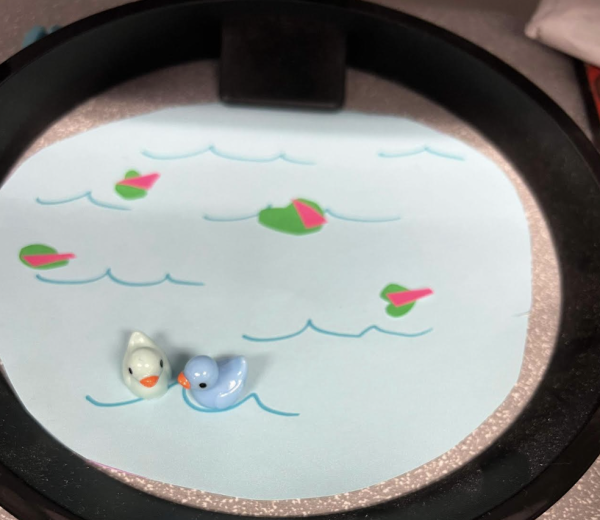
“It’s just such a simple thing that makes your day so much brighter,” Ms. Swinson said. “If seeing a little duck on my desk is enough to make me smile when something is frustrating, why not have that?”
All of these experiences are built around the same general principle: “It’s cool for people to stumble upon something in some strange place unexpected[ly] that’s sort of amusing,” Mr. Phipps said. “You hope that when someone finds it there’s this moment of, ‘Oh! There’s a duck there. That’s crazy.’”
The out-of-the-blue nature of the ducks is part of what makes them so endearing. “They’re unexpected. They don’t intrude on any of the space. They don’t bring any sort of negative impact to the space,” Mr. Faulkner said. “It’s awesome to suddenly round a corner [when] you’re not really expecting it, and there’s a duck just hidden away.”
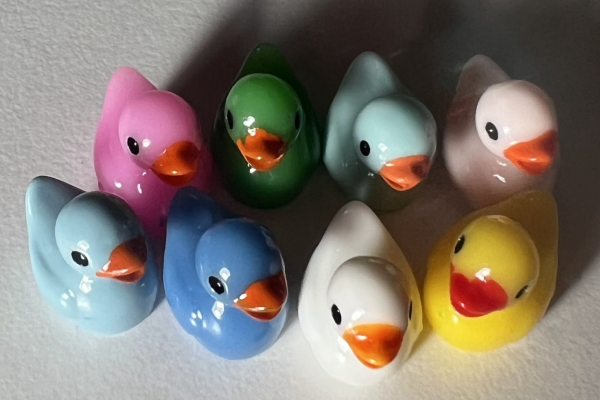
“It’s a communal thing: you find the duck, you rehide the duck.” Mr. Phipps added, “There’s a little bit of whimsy involved because they’re these little colorful ducks.”
This whimsy is one of many factors that allows the figurines to serve not just as a connector, but as a source of happiness. “I think the ducks are little reminders that small things can spark great joy,” Mr. Faulkner said. “We need to look out for the little plastic ducks that are hidden away in our lives.”
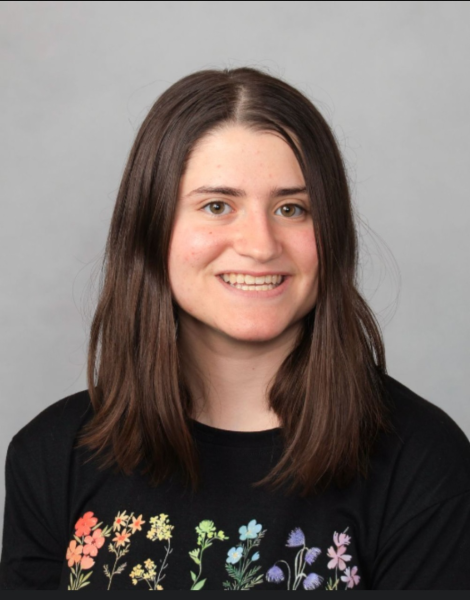
Scarlet Gitelson (‘26) is delighted to be serving as one of this year’s Editors-in-Chief. Using her writing, she seeks to promote connection and discourse...















































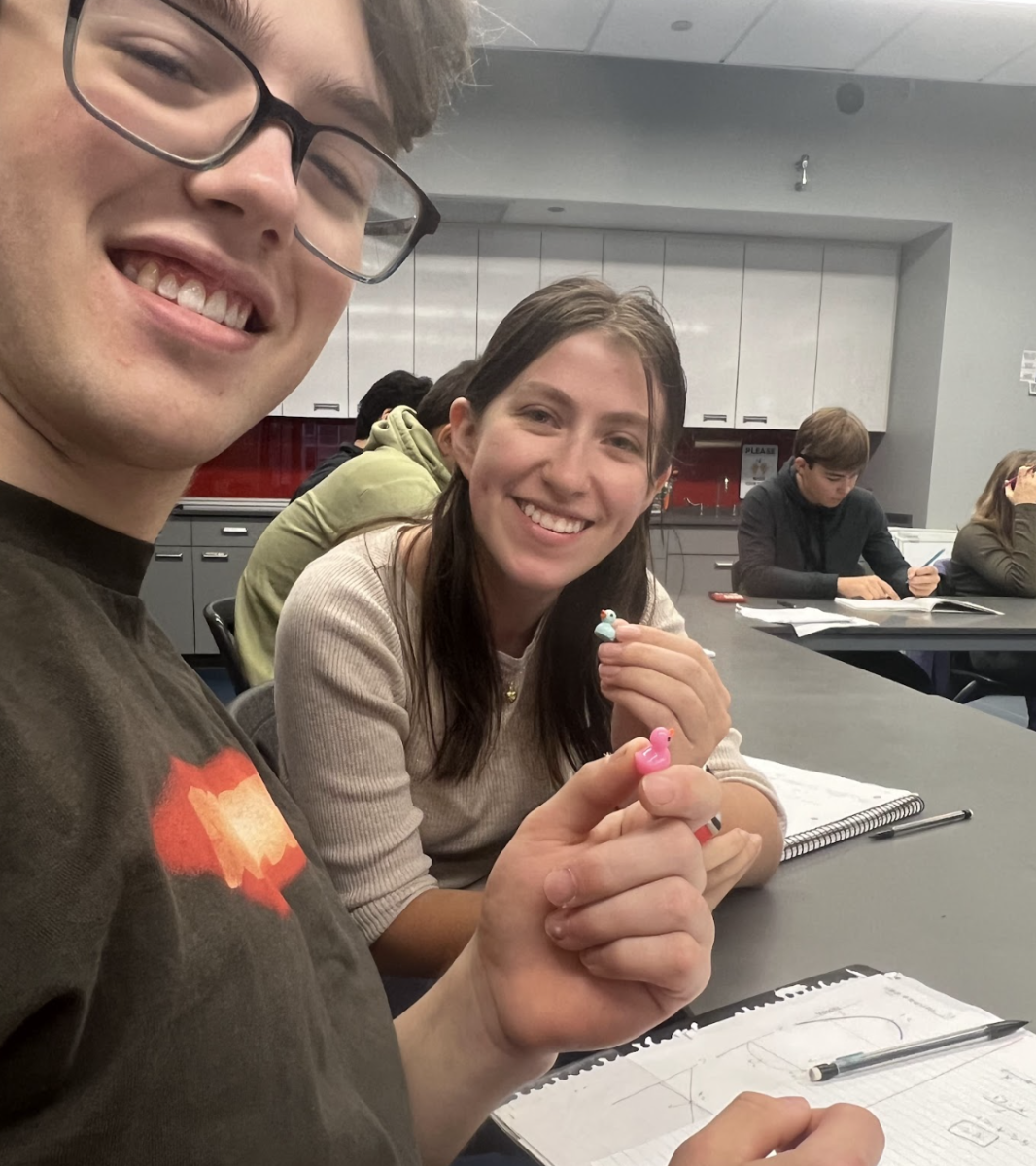
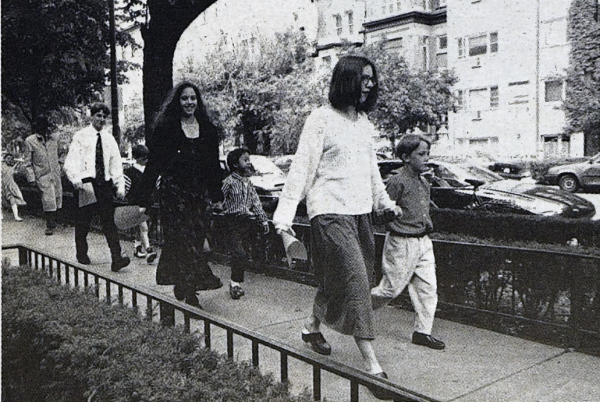





Viv • Oct 20, 2023 at 3:14 pm
So cool!! This is definitely something that brings joy to a community, so it’s awesome to see it highlighted like this.
Sanaiya ML • Oct 17, 2023 at 1:53 am
Whoa, a wholesome prank for everyone to enjoy?
Who WOULDN’T be on board? 🙂
This is absolutely delightful in every sense of the word.
(For any LSOC English teachers chilling in the comments section, “this” refers to Chris and Mikayla’s delightful rubber duck search, Scarlet’s delightful article, and all the teachers’ delightful quotes on the matter.
Thank you, everyone, for putting a smile on my face (and to be sure many other faces)! I feel mighty compelled to now chase the hidden ducks in my own life, too.
—A very delighted alum (and human-interest story lover)